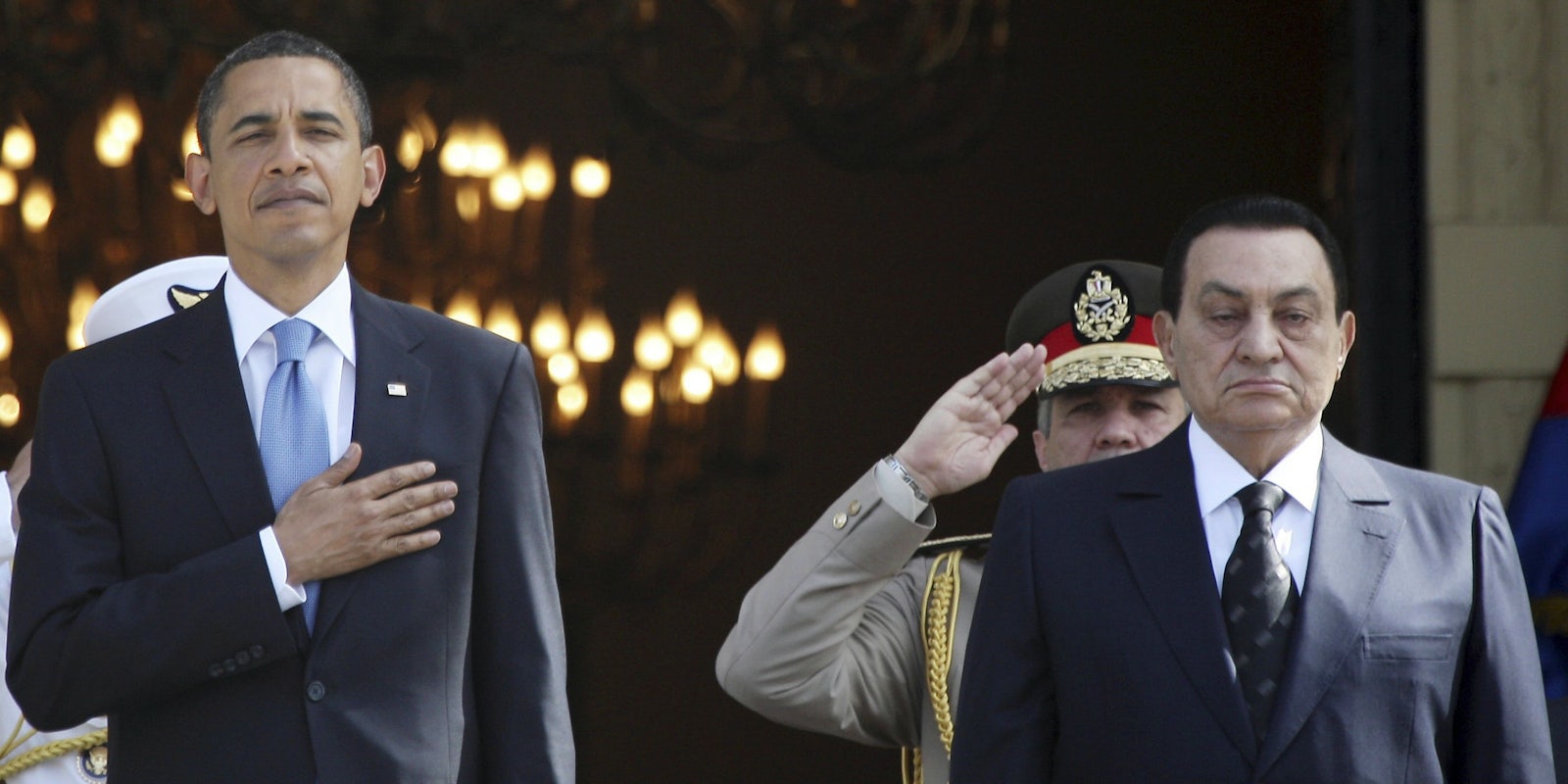Like a sort of period at the end of the Arab Spring, Egypt’s 87-year-old former strongman Hosni Mubarak will be released instead of imprisoned for life. This according to a Saturday ruling from the Cairo Court of Appeals.
After almost three decades of iron-fisted rule over Egypt, the Arab Spring and the Tahrir protests drove him from power in February 2011. He was arrested and tried for the deaths that resulted from the Jan. 25, 2011, protests and sentenced to life in prison.
But once the military removed Mohamed Morsi, the Muslim Brotherhood candidate, from the presidency in the first post-Mubarak election (then imprisoned him and replaced him with their own candidate) Mubarak’s fate got a lot rosier. The military was Mubarak’s bulwark and guardian during his years in power.
Retrials in the next several years resulted in Mubarak being sentenced to three years for embezzlement and credited with time served. Exactly when he’ll see daylight is uncertain but when he does so it will be with his sons, Gamal and Alaa, whose sentences were also reduced and credited. Mubarak will also have to pay a large fine.
What isn’t uncertain is the propensity for the military government to focus on critics and activists, instead of old tyrants.
Longtime activist Alaa Abdel Fatah was sentenced to five years in prison—then given a suspended sentence but pressured into silence. Attorney Mahinour Al-Masry was rearrested while free, awaiting an appeal for a two-year conviction (of her and nine others) on a charge of storming a police station during those Jan. 25 protests.
These are just a couple of marquee arrests. The military-influenced courts have sentenced 230 people—at once—to life in prison for taking part in the protests that drove Mubarak from power, and from which he now walks away.
Photo via Muhammad Ghafari/Flickr (CC BY 2.0)


